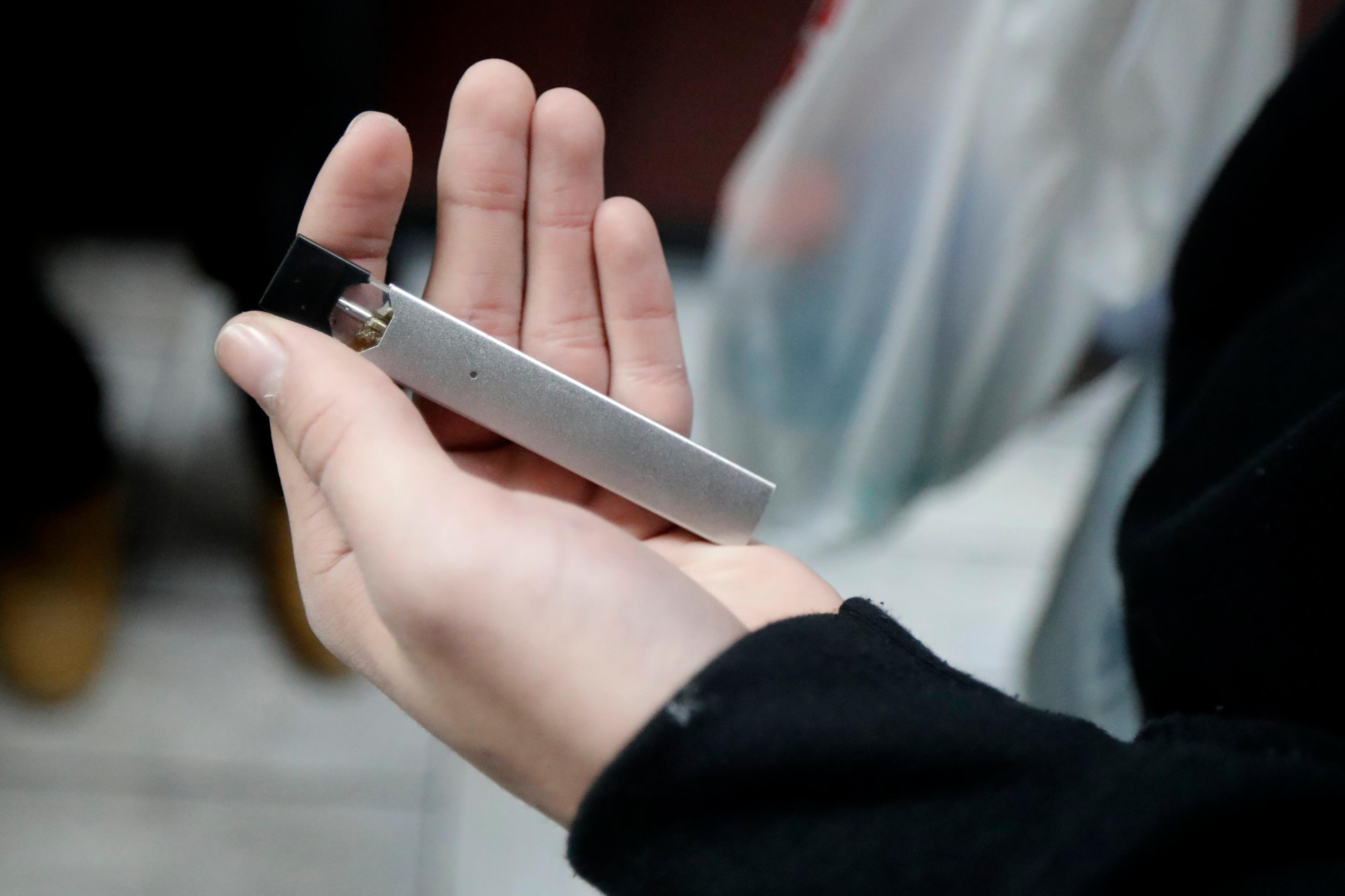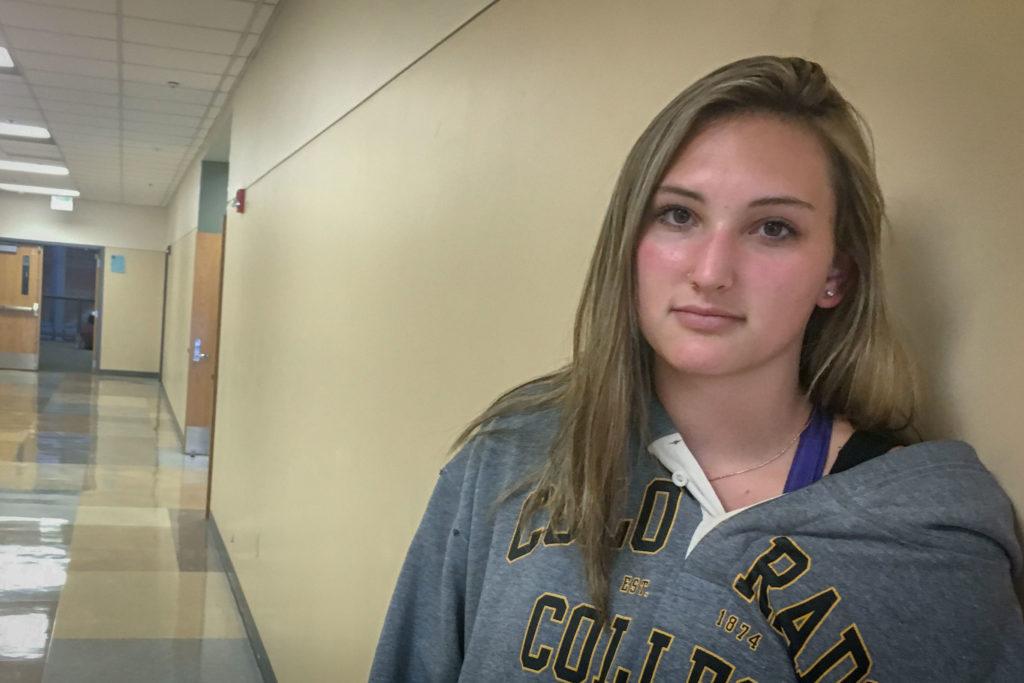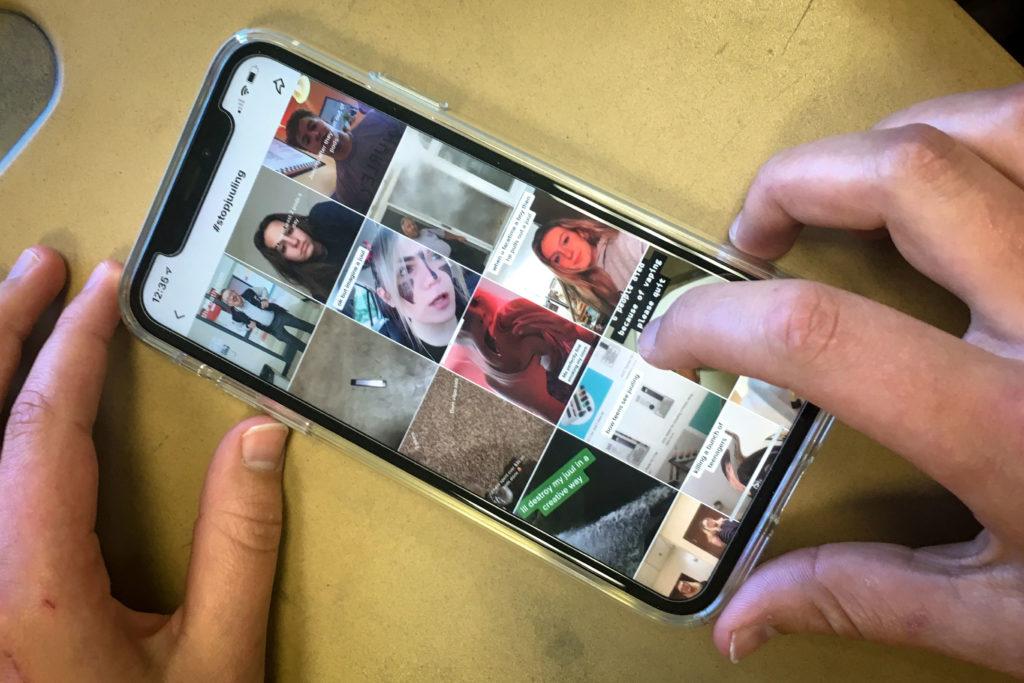
It all started at the mall when a friend offered a puff from their JUUL e-cigarette.
“It was kind of peer pressure,” said Beth, a Denver 15-year-old who started vaping in middle school. “Then I started inhaling it, and then I suddenly was, like, ‘wow, I really think that I need this, even though I don't.’”
Soon, Beth — who asked that her last name not be used because her parents don’t know about her vaping — had a JUUL of her own. She was vaping half a pod of e-liquid a day, the nicotine equivalent of half a pack of conventional cigarettes. Beth tried to quit on her own so that her mom didn’t find out. But it was hard and her school didn’t have enough resources to help out.
“When you wake up in the morning, you're just like, ‘Oh, I need to hit my thing. Where is it? You can't really get it off your mind unless you distract yourself,” she said.
The recent rash of stories about mysterious cases of lung diseases connected to vaping was the turning point for Beth’s goal to quit. She didn’t take the risks seriously until a “friend actually almost had his lung collapse, and he was coughing blood and mucus and I just couldn't do it anymore. It's not worth it.”

Colorado’s health department has reported nine cases and seven hospitalizations. It hasn’t released any patient information, so CPR News couldn’t verify if the student Beth mentioned is one of them. Federal health officials are investigating more than 1,000 vaping-related illnesses, including 18 deaths. No cause has been determined.
A JUUL spokesman said the company is confident they’ll get to the bottom of it.
Meantime, one Colorado program is ramping up to help. In July, National Jewish Health in Denver launched My LIfe, My Quit, which also serves 11 other states. It’s tailored specifically for teens who want to quit e-cigarettes and vapes. Clinic director Thomas Ylijoa said a recent study showed 12 percent of high school seniors in the U.S. use e-cigarettes daily. The program, which uses a traditional helpline, texts and chats and live coaching, has seen a sharp surge in signups in the last few weeks.

“They’re telling us they can feel their lungs burning when they're using these products. They're telling us that they can't exercise the same way they used to before,” Ylijoa said. “They're telling us that they can't give up these products just on their own.”
Ylioja reads from a printout of text conversations between teens and coaches.
“‘I'm 16 years old. I'm super addicted to vaping. I can't seem to quit when I don't have it, that's all I think about.’”
“‘My family is worried and all the stories about people getting sick, I don't know if it's really bad to vape, but because these stories, they could be rare occasions, but I'm worried about it,’” said Ylioja as he read a second.
“Here’s another one,” Ylioja said. “‘So, my friends are the ones who got me into vaping and they think I should not stop, but I want to because I don't want to hurt my family if I get sick.’”
Nichole Lopez, one of the program coaches, said most teens know about the vaping-related sicknesses and they’re freaked out.
“I had somebody say, ‘I just don't want to die, so I need to quit,’” Lopez said.
Don Daniels, the director of the tobacco education program at Chatfield High in Littleton, senses what could be a sea change in teen attitudes. The reports of people being “truly sick and dying from these devices is enough for young people to make a decision that's going to benefit their health. They're savvy,” he said. “This is a smart generation and they're thoughtful and they have the ability to make good choices.”

Chatfield senior Mia Norrid, a swimmer, doesn’t vape. But her mom posted a story about the illnesses on Facebook and tagged her daughter as a nudge to speak up.
“I think she tagged me so I could let my friends know about it because a lot of my friends do it,” she said.
Over lunch, a group of Chatfield ninth graders showed off what they’ve seen on social media. In an app called Tik Tok, a search for ‘quitting JUUL’ or ‘#stopjuuling’ brought up videos of people “breaking their devices and, like, throwing them away and trying to get other people to quit too,” said one freshman.
In one, someone lit an e-cigarette device on fire; in another, a pair of devices are flushed down a toilet. A third showed someone whacking a JUUL with an ax on concrete.
Social media is often blamed for helping popularize e-cigarettes among teens. Now it may be playing a role in quitting, another freshman pointed out But do they think it will make a difference?
“I do, yeah. For a lot of people, actually,” the student said. “I've known kids who have stopped vaping because of it.”
The state intends to survey Colorado high school students in the fall about how much they vape. Results are expected to be released in 2020.









